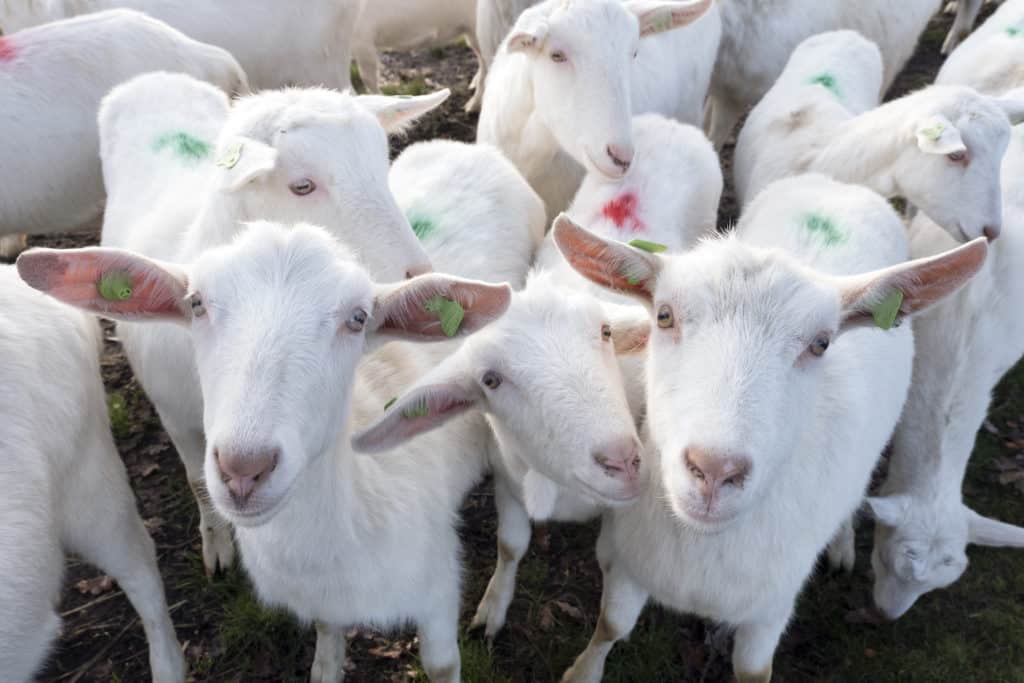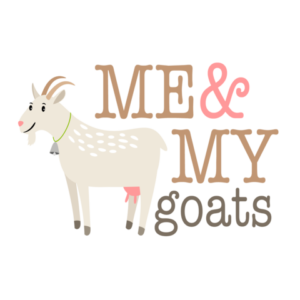
Thinking about getting a goat when you have no idea where to start can be intimidating. All sorts of questions pop up: Do I need to own a farm to own a goat? What kind of feed do I get for a goat? What kind of goat do I get? Where do I even find a goat?
Goats take some research and they take some initial effort, but so long as you have space, time, and spirit, they are an easy animal to get any farm started.
1. Finding Your Goat
Finding a reputable breeder is step number one. To do this, you can ask locals or look online for results in your surrounding area. A breeder with a varied selection is good but most important is making sure that the breeder kept things hygienic and healthy for your to-be goat.
Here are a few questions to ask:
- How old is the goat?
- Why are you selling the goat?
- Is there a medical history?
- Has this goat received the appropriate vaccinations?
Something else to do when looking at your perspective goat is really looking at your goat.
Does it look to be in good health from the outside (are there any smells, welts, etc. that there shouldn’t be)? Is the goat’s coat orderly and clean? Does the goat show any signs of mistreatment and/or illnesses (limp, red splotches)? Are the hooves clean and without infection?
These questions and observations can better guarantee you buying a healthy goat from the right source.
2. Cost
Though the price can vary, the average cost of a goat ranges between $100-$600+.
Breeds are taken into account, as is the gender of the goat. (Females are more expensive, as are pure-breds). Not only do those variants matter, but whether the goat is registered or not can make a difference of a hundred dollars or more.
Why are registered goats so much more, you ask? Mainly because the registered goats are those whose bloodlines can be traced. They are usually recorded for breeding purposes and are almost guaranteed to be of higher quality. In other words, they are the royals of goats, the barnyard bluebloods.

On that note, unregistered goats tend to be less expensive- around $100-$300 flat. Registered goats on the other hand can go anywhere from $300-$2000.
3. Breeds
Finding the right breed of goat for you is essential. To do that, you need to ask yourself why you want a goat in the first place. What is the purpose of your search? Goats can provide anything from milk, meat, and hair to good ole fashioned fun.
The table below will help you pick your perfect goat:
| Dairy Goats | Meat Goats | Goat Pets |
| *Alpine | *Boer | *Boer |
| *Nigerian Dwarf | Kiko | *Nubian |
| La Mancha | Mixed | Nigerian Dwarf |
| Saanen | Pygmy | |
| Mixed | *Fainting |
Something else to note: only female goats can produce milk and cannot produce until after they have given birth. (This may be something to consider when buying).
4. Shelter
Goats like the quaint life.
Nothing big and bulky, not even a barn, but a simple three-sided shelter will do; something to protect them from any mild weather.
Goats love the sun, but they need their shade, so trees are a must. To protect them from predators and escaping, a five-foot-tall woven wire fence is the minimum.
And space. Goats love their space.
Though it’s debated, the agreement is that there should be a maximum of two goats per acre of land.
5. Feed
Goats enjoy a good majority of the classics: hay and pasture, clovers and mixed greens, coarse grain goat feed. When it comes to snacking, pumpkin seeds and black oil sunflower seeds are the fan favorites.
Another must-have snack for your goat is trace mineral salt blocks. Goats love them and cannot get enough of them! This is a good source of vitamins and nutrients for the animal, that they may not be getting through the dry foods (hay, etc.) so the salt licks are a good item to have on your pet’s menu.

Goats typically spend their day grazing (the lucky ducks), with an average of 8 hours on the farm snacking their little hearts out.
*Watch out for: azaleas, hemlock, wild cherry plants/trees, as goats are allergic to them.
6. Playtime
Something important to note, like anybody, goats can get bored. They have a ton of energy and having the right toys in your backyard could mean the difference between a happy goat and a grumpy one.
Though many goat owners have specific equipment bought online, there are plenty of DIY options out there. Goats aren’t too picky- so as long as there’s something to jump on and jump off of, they’re set!
Some commonplace items for play:
- Tires (goats never lose interest in tires)
- Trampolines (mini)
- Barrels
- Seesaws
- Tetherball
- Plastic Playsets
*If it’s something a toddler would like, odds are your goat will enjoy it too!
7. Cleanliness + Health
The grand tip on keeping your goat the G.O.A.T aka, how to keep your goat alive and happy: vaccines + de-worming.
There are a few vaccinations that are important (rabies, footrot, Chlamydia, sore mouth) but the BIG SHOT vaccine is the CD-T. The CD-T vaccine treats Clostridium perfringens types C and D, plus tetanus, and is essential in keeping a healthy goat. All farmers swear by it, and those looking to raise goats are encouraged to treat accordingly.
As for de-worming, the procedure should be performed annually as it tests for diseases. This and yearly hove cleaning could also prevent any pain from coming to your goat throughout the year.
8. Being Equipped
If the goat you want is a dairy-producing goat, there are a few extra gadgets required.
Looking online, you can find that the milking equipment can be super simple (bucket, gloves, iodine) or extremely complex (stainless steel funnels, wax pencil, paper milk filters). Averaging costs for equipment go from $160- $2,000 but most suggest starting with the basics, getting hands-on experience, and then deciding how far to go with the tools.

For best dairy results, little is mandatory. More than the tools themselves, consistency is key. Milking should be done once or twice daily, at least 12 hours apart, and chilling the milk immediately after extraction is essential.
9. Some Extra Billy Goats Stuff
Some last minute tid-bit about goats: all of them have horns.
That’s right, males and females, every breed and every size have horns. And because goats have that playful nature, there can be some head-butting and hurting each other, so you might think about getting a de-horned goat or even a young enough pet to get de-horned.
Though the horns can regrow, they won’t come back in the same way, more like little nubs, and the process of getting them removed is not harmful to the goat’s growth or health.
